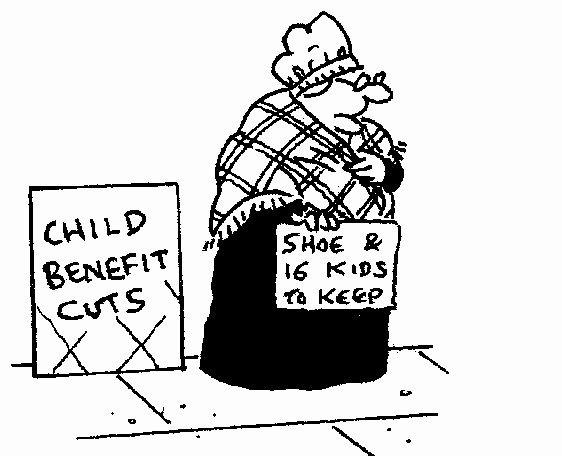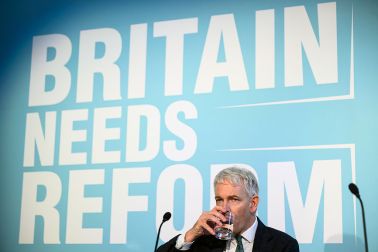
Should families on welfare limit the number of babies they have? Jeremy Hunt suggested so last night – kicking off a debate fuelled by our disclosure in today’s Spectator about just how many out-of-work claimants have 6, 7 and 8+ children. The moral argument is pretty clear. Before a worker wants to expand his family, he usually thinks about whether he can afford it. It’s far from uncommon to hear people say that they’d like, for example, three kids – but this brings with it a certain financial requirement (size of house, car, etc) which is prohibitive (and far bigger than can be offset by child benefit).
Yet the reverse financial incentives exist for parents on benefits. The more children they have, the more the state gives you. The Sun had a story yesterday about a couple in Kent with 13 kids on benefits, who was given a £2,500 in backdated benefits and used £1,700 of it to buy a 30’ flatscreen. This sort of story enrages a type of voter: they ask why they are taxed to fund someone else’s family. People at the top of the income scale tend not to worry about this. But what the general election campaign taught politicians from all parties was the degree of resentment of low-paid working people who, say, live opposite a welfare-dependent family and can almost see the money coming out of their paypacket and into the holiday budget of their neighbours. Why the new focus on children? Because it’s a major issue for Britain – we’re the worst in Europe (graph below)

David Cameron cannot come up with many tax breaks. But this battle over high benefit claimants is designed to appeal to voters’ sense of fairness, to fight on values. To be on the side of the strivers, not the skivers. The Swedish conservatives were recently re-elected (my report here) by cutting taxes for workers, not the unemployed. Their slogan: “we are the new workers’ party”. Cameron, I suspect, is trying a similar strategy – and if Ed Miliband has any sense, he’ll fight him for this definition of fairness. If Labour wants to win back the C2DE voters which defected at the last election, then an appeal to their values will do it.
It’s this group that Ed Miliband has in mind when he speaks about the “squeezed middle” – perhaps the best phrase he’s come up with so far. Voters who he believes will be outraged by the prospect of £10,000 tuition fees, and will feel the VAT rise. Again, I suspect this will be more an appeal to their values than having a set of fiscal bribes for them. James Forsyth’s cover piece last week, on Cameron’s aim of carving out a new Tory voter, is the best primer you’ll read on this.
So have value wars finally begun? Newsnight is doing a piece tonight on the issue of large welfare families. Do they (as many CoffeeHousers suggested yesterday) account for a negligible percentage of claimants? Or is having any nine-plus family members on welfare too much, as Tom Harris tweeted? A fascinating fault line in politics may be now opening.
PS: The above cartoon, by Geoff Thompson, is from this week’s magazine – which broke the story in our new Barometer column.







Comments